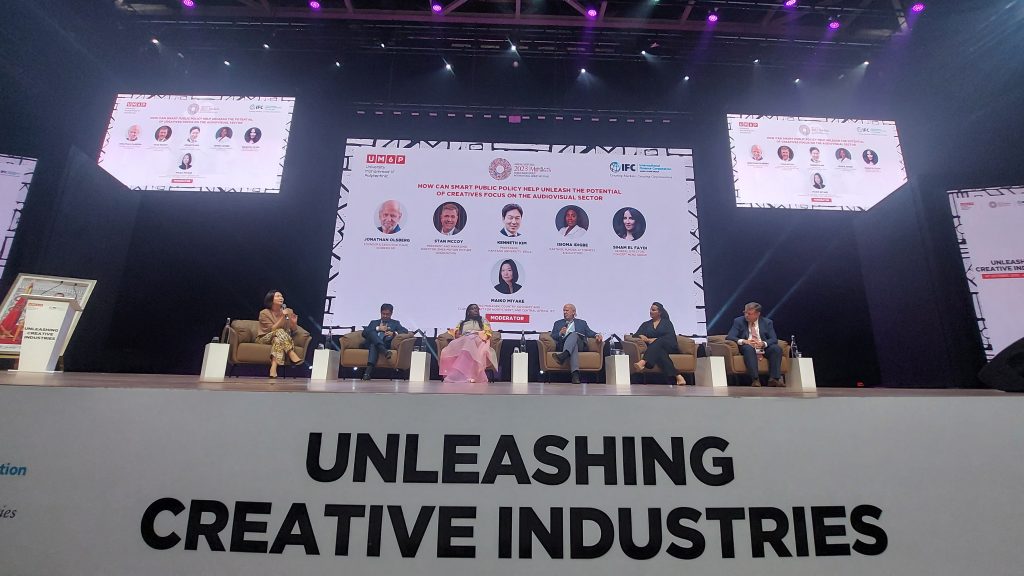In Praise of Boring Public Policy: Key Conditions for a Healthy AV Investment Climate
What are some key framework conditions that developing countries need to attract inward investment to aid in developing a thriving audiovisual sector?
I reflected on that question as I was preparing to participate in a panel discussion to talk about optimizing the investment climate for the creative industries sponsored by the International Finance Corporation (IFC) at UM6P – Mohammed VI Polytechnic University in Morocco.
Here are the key policy considerations I laid out:
- For governments, the path to a vibrant and economically successful creative sector is paved with stability, predictability, and the rule of law.
- Film and television is a business of intangible assets – creators and their business partners therefore depend heavily on the legal construct of copyright.
- Key challenges to the business of film and television production, in both developed and developing countries, all have to do with risk: intrinsic risk and extrinsic risk.
- Intrinsic risk: Every film or TV series is a prototype, and some of them fail. Managing that intrinsic risk, and making sure the successes outweigh the failures, is the essence of the business of film and television production.
- Extrinsic risk: The work of film and television is made more difficult by all the things the producer does not control. These are the “X factors” that drive producers crazy. Extrinsic risk includes threats like:
- Piracy – the risk that a work is stolen, or that illegal services destroy the market for lawful distribution is; or
- Regulatory risk – the risk that the system makes it impractical to do business.
- Sound public policy can play a key role in helping producers to mitigate risks, and also counterbalancing risks with incentives.
- For example, strengthening copyright enforcement to reduce piracy, or providing production incentives to mitigate risk and favorably influence the greenlighting process, are both key policy strategies that respectively mitigate risk and counterbalance risks.
In preparing for the session in Morocco, I was asked: How can governments fight back against the perception that they are high-risk countries?
My answer: They can fight it by being… boring.
That’s right: boring. You see, in our industry we like all the drama to be on the screen, and we hate for any of drama to find its way into the accounting department, or the legal department. For example, a production incentive that fails to operate consistently as promised on paper creates angst in the accounting department. Similarly, copyright protection that exists on paper but proves unenforceable in practice creates the wrong kind of legal drama.
That’s why our policy work at the Motion Picture Association EMEA emphasizes the need for stability, predictability and transparency: Rules that function in reality just as promised on paper are good for business.
A regulatory framework that has those features will engender market confidence and support creative sector jobs and growth.
Check out this 60-second clip on YouTube to hear my praise for boring public policy.
Thanks again IFC for the opportunity to share those messages.

